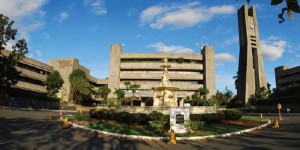MANILA, Philippines—A coalition of consumer groups in Metro Manila and nearby provinces has asked the Court of Appeals to issue a “writ of kalikasan” to stop the Metropolitan Waterworks and Sewerage System (MWSS) and its two concessionaires from using a combined sewerage drainage system.
The Water for All Refund Movement (WARM), through its president Rodolfo Javellana Jr. and lawyer Anthony Edsel Conrad Tupaz, said the collection in a single pipe system of rainwater and raw sewage posed a threat to the environment and public health.
A writ of kalikasan would lead to appropriate protection orders and mandate court hearings on the environment and health issues.
In its 31-page petition, WARM said there were urgent safety concerns: “[W]hen there is more rainwater than the system can handle, a mixture of raw sewage and rainwater goes directly from the sewer system to a body of water without first being treated. It is the same as dumping highly toxic raw sewage into a natural body of water, an act prohibited by law.”
The overflowing of sewage-contaminated rainwater during floods also contributes to the spread of waterborne diseases such as leptospirosis, dengue and typhoid fever, the groups said.
Warm pointed out that a combined drainage system was already “clearly acknowledged” by developed and developing countries alike as something that would do more harm that good.
The coalition sought a temporary environmental protection order (Tepo) that would direct the MWSS and its concessionaires, Maynilad Water Services Inc. (MWSI) and Manila Water Co. Inc. (MWCI), to implement an adequate sewerage and sanitation plan and to stop collecting “environmental/sanitation” charges from consumers.
WARM said the combined drainage and sewerage system used by MWSI and MWCI, which was authorized by MWSS and has clearance from the departments of Health and Environment, violated “a host of environmental laws.”
MWSI and MWCI also have yet to submit their plans and projects for the construction of wastewater treatment facilities in Metro Manila, Rizal and Cavite up to the year 2037, which the Supreme Court ordered in the 2008 case of MMDA v Concerned Citizens of Manila Bay, also called the Oposa Case. Jerome Aning
